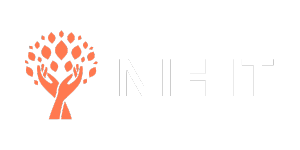TRUST AND SAFETY
Building a Secure and Inclusive Innovation Ecosystem
We are committed to advancing innovation with integrity. Our Trust and Safety initiatives ensure that startups, MSMEs, and innovators operate in a safe, secure, and ethical environment.
Why Trust and Safety Matter
In a rapidly evolving digital ecosystem, trust is the foundation of sustainable innovation. At NIHIT, we believe that technology should empower - not endanger. From protecting data privacy to countering misinformation and ensuring equitable access, our Trust and Safety efforts are designed to uphold digital rights, promote ethical use of AI, and foster cross-border collaboration grounded in mutual respect.
We enable safer innovation by supporting:
– Women-led enterprises and underserved communities
– Startups tackling security challenges
– Policy-aligned and regulation-ready innovation models
Features
Assess
Platform
Risk
Address
Cybersecurity
Gaps
Comply with
Indian, US &
Global Norms
Promote
Ethical AI
Development
Grievance
Redressal &
Safeguards
You’ll soon find templates, policy guidelines, training modules, and implementation toolkits tailored to startups
and MSMEs
Frameworks
NIHIT is developing adaptable frameworks to:
FIST
FIST is a global framework launched in India to promote digital trust, safety, and integrity through collaborative, ethical, and secure digital practices.
AISAFE
AISAFE presents a well-rounded strategy to combat deepfakes by integrating detection technology, global collaboration, and ethical AI practices.
Guardian AI Framework
Transparency and privacy are key to building trust in AI as it gains decision-making power.
Ethical data use is crucial for responsible AI adoption.
Pillars of Trust and Safety (Industry Perspective)
1. Platform Integrity
- Ensuring systems are protected from fraud, abuse, and exploitation.
- Includes algorithmic accountability, moderation tools, secure-by-design engineering.
2. User Protection
- Guaranteeing the rights and safety of end users.
- Includes privacy-first design, age-appropriate standards, user control tools.
3. Transparency & Accountability
- Fostering trust through clear communication.
- Includes data use disclosures, reporting dashboards, and audits
4. Digital Wellbeing & Inclusion
- Designing tech that enhances lives.
- Includes accessible and gender-sensitive design, bias guardrails
5. Collaboration & Crisis Response
- Responding to emerging threats.
- Includes partnerships, real-time response systems, and participation in global forums.
NIHIT Newsletter
Sign up to receive updates, valuable information and market insights

